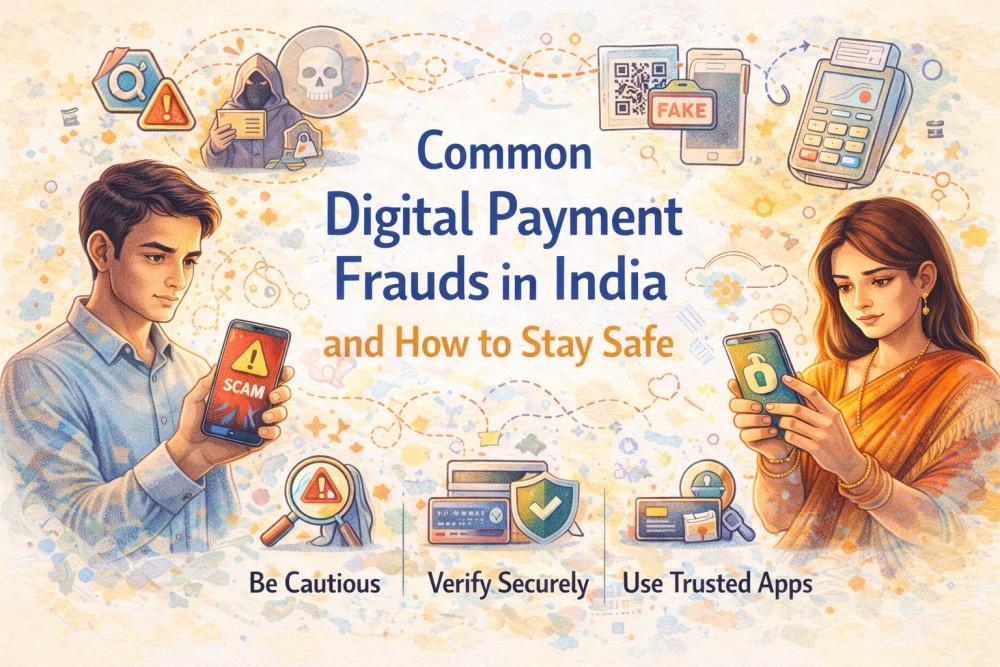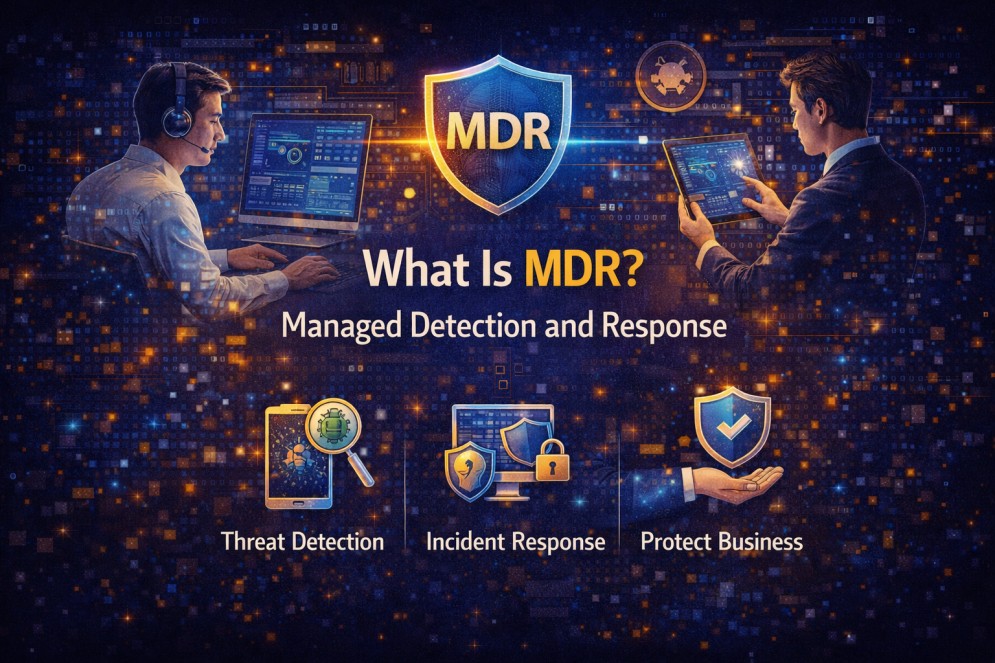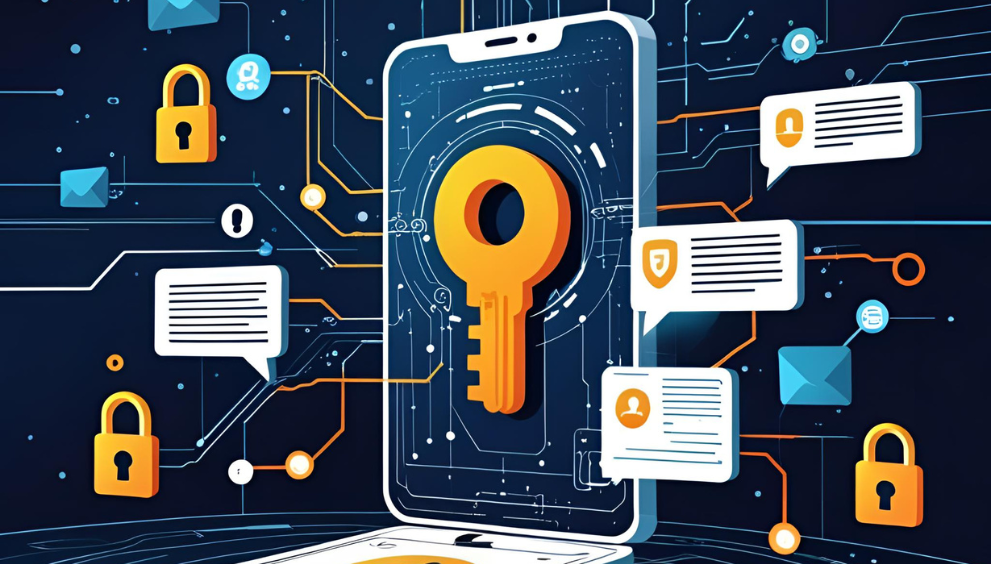Cryptography in Cybersecurity: Its Role in Antivirus Protection
Cyber threats are becoming more powerful and harder to stop. This puts both individuals and businesses at constant risk. To stay safe, protecting digital information is now more important than ever. One way to do this is by using cryptography in cybersecurity, which plays a key role in keeping data safe and preventing it from falling into the wrong hands. Keep reading this blog to find out more about the role of cryptography in the world of cybersecurity.
Why Is Cryptography Important in Cybersecurity and Antivirus?
Wondering how to stay protected from cyber threats? You will need antivirus solutions. These help in detecting and blocking threats. But one should also not overlook the importance of cryptography in cybersecurity. It prevents unauthorised access and manipulation of data. These two offer total security together.
Protecting Data Privacy
The ability to maintain the secrecy of sensitive information is the basis upon which the field of cyber cryptography is based. Whether you’re surfing, buying things or sending files, there are multiple channels your information goes through. ‘
Cryptography helps in the encryption of data. This makes your information unreadable to everyone who does not have the proper key. Antivirus confirms that updates come from the correct source. It also ensures that no one tampers with the data in transit or storage, maintaining its original integrity.
Verifying Safe Software
An important aspect of cryptography and security is to verify the authenticity of software. Antivirus programs work on the basis of digital signatures that rely on cryptographic techniques. These signatures are like the stamps of approval from trusted developers. Cryptography verifies that the antivirus updates or other tools downloaded by you are the real deal and haven’t been tampered with by attackers pretending to be the software’s maker.
Keeping Data Accurate and Untampered
Data tampering can have serious consequences. Picture a virus signature database of an antivirus being subtly edited by an attacker. This, in turn, would cause false negatives. The use of cryptography in cybersecurity maintains data integrity to prevent such issues. Cryptographic techniques are powerful enough to detect even a small change and can warn the system before damage has been inflicted.
Types of Cryptography Used in Cybersecurity
Cryptography in antivirus software does not follow a one-size-fits-all approach. There are different cryptographic techniques, each offering specific benefits. These methods collectively reinforce the broader framework of cybersecurity and cryptography.
-
Symmetric Encryption (Simple Key)
Symmetric encryption is one of the oldest forms of cryptography. It involves using a single key to both encrypt and decrypt data. This method is fast and efficient, making it suitable for large data transfers. In cybersecurity, it is commonly used in secure file storage and transmission within antivirus programs. However, both parties must securely share the key beforehand, which can sometimes be a challenge.
-
Asymmetric Encryption (Public and Private Keys)
Unlike symmetric encryption, asymmetric encryption uses a pair of keys, one public and one private. The public key is used to encrypt data, and the private key is used to decrypt it. This makes data sharing more secure, especially when no trusted channel is available to exchange keys. Asymmetric encryption is widely used in licensing and product activation to ensure that only authorised users access the antivirus software.
-
Hashing (Data Fingerprinting)
Hashing converts data into a fixed-length code. This code is known as a hash and functions as a kind of fingerprint. Antivirus applications use hashing for malware detection, comparing file hashes to the fingerprints of known malicious files. Hashing can ensure that files have not been altered or tampered with. It is a key weapon in quantum cryptography and traditional cyber defences.
How Cryptography Helps Antivirus Protect Your Device
Antivirus protection can now detect malware in real time and offer encrypted defence. The presence of cryptography in these systems ensures that protection is not only active but also secure from internal and external threats.
Encrypting Data to Block Malware
When a file or folder is encrypted, it becomes unreadable to malware. Many ransomware programs look for accessible files to lock and demand payment. By encrypting data beforehand, cryptography protects it even if malware penetrates the system. This reduces the damage and preserves critical information.
Verifying Antivirus Software Is Genuine
One of the overlooked roles of cryptography is its ability to validate software. Antivirus companies digitally sign their software. These signatures are checked during installation or update. This process ensures that what you are downloading has not been modified or spoofed. Such cryptographic checks are central to cryptography and security.
Securing Communication and Updates
Every time your antivirus contacts a server to fetch updates, it is a potential point of attack. Cryptography ensures the data exchanged during these sessions remains private and untouched. Encrypted communication channels protect against man-in-the-middle attacks and ensure timely and secure updates. This is where cyber cryptography plays a key role in protecting your device.
How to Use Cryptography and Antivirus Together for Better Security
While antivirus software alone provides a line of defence, combining it with cryptographic practices significantly enhances protection. These two pillars, when used thoughtfully, become one of the most powerful cybersecurity solutions.
Choosing an Antivirus with Strong Encryption
Selecting the right antivirus software involves more than just checking how well it scans for threats. Strong encryption plays a vital role in ensuring the security of your data and the reliability of the software itself. Here is what to consider:
- Look for recognised encryption standards: Choose antivirus software that uses strong encryption protocols like AES 256-bit or RSA. These are globally trusted methods for securing data.
- Check for digital signature verification: Good antivirus tools verify software updates using cryptographic signatures, ensuring authenticity and preventing fake updates.
- Ensure end-to-end encryption: The best antivirus software encrypts communications between your device and the server, protecting your data during updates and scans.
This combination ensures complete, tamper-proof internet security.
Best Practices to Keep Your Data Safe
Along with using secure antivirus software, consider the following easy tips to protect your data:
- Enable full-disk encryption if available.
- Use complex passwords and update them regularly.
- Do not download antivirus software from unknown sources.
- Always keep your antivirus up to date.
- Back up your data frequently in an encrypted form.
These simple habits can dramatically improve your cyber resilience when paired with good antivirus software.
Conclusion
Cryptography strengthens antivirus protection by ensuring data privacy, verifying authenticity, and preventing tampering. When combined, they offer a powerful defence against modern cyber threats. Choosing antivirus solutions with strong encryption and following basic security practices helps users stay protected and maintain trust in their digital interactions.
Frequently Asked Questions
- Can strong cryptography guarantee 100% cybersecurity?Strong cryptography significantly reduces the chances of data breaches and cyberattacks by protecting sensitive information. However, no solution can provide complete protection on its own. It must be combined with other cybersecurity tools and best practices for full effectiveness.
- Can antivirus software work without cryptography?Yes, antivirus software can function without cryptography, but its security will be limited. Without cryptographic support, it cannot verify update authenticity or securely handle sensitive data. This leaves the system more vulnerable to spoofing and tampering.
- Does using cryptography slow down antivirus performance?Modern cryptographic algorithms are highly efficient and designed to minimise performance impact. While some encryption processes may use additional system resources, the difference is often negligible for everyday users. Overall protection and data integrity far outweigh the minor performance trade-off.








